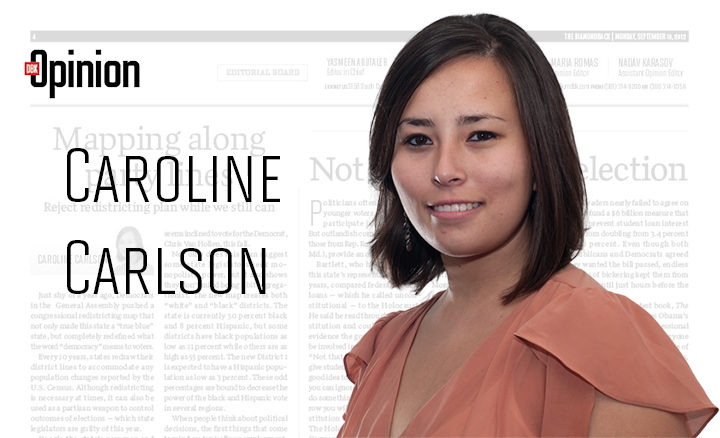
Senior government and politics and information systems major
The saying goes that “a picture is worth a thousand words,” but as far as nude celebrities go, the saying might as well be “a picture is worth hundreds of news articles, increased press coverage and nasty lawsuits.”
On Aug. 31, a 4Chan user obtained and posted nude photos of celebrities, including Jennifer Lawrence, Kate Upton and Kirsten Dunst, after allegedly hacking into their iCloud accounts.
While what followed seemed to be massive social media buzz over the leaked nude photos, a huge political question lies beneath the surface of the controversy: Should the websites that published these photos, such as Imgur and 4Chan, bear any legal punishment?
Emily Bazelon at Slate thinks so. In an opinion piece published Wednesday, the senior editor argued that Congress could change federal law to punish sites profiting from leaked nude photos, or in her words, “involuntary porn.”
The federal law to which she’s referring is Section 230 of the 1996 Communications Decency Act, which states that “no provider or user of an interactive computer service shall be treated as the publisher or speaker of any information provided by another information content provider.” Ultimately, this is the law protecting sites or “interactive computer services” such as Reddit and 4Chan from legal punishment against posts made by other actors.
Bazelon claims there are two rationales behind the law: to shame subjects of nude photos and to protect the Internet from censorship. Though I am not a proponent of releasing private nude photos, the release of these photos or any other involuntary porn is, unfortunately, a byproduct of a law that shouldn’t be altered — one of the most important policies in protecting free speech online.
There are already criminal laws that punish hackers from accessing and releasing content from private accounts. But online forums are — and should be — a different story.
From an applied perspective, if there were ways to legally prevent online forums and websites from playing host to involuntary porn, then these sites (as well as their users) might not know if they are actually posting what would legally be considered “involuntary porn.” This may result in excessive policing of what is supposed to be the “free and open” Internet.
But freedom of speech aside, laws restricting publication of certain content might not reduce this type of behavior but actually perpetuate it. For instance, last year, the FBI took down Silk Road, a black market website that allowed users to sell drugs and other illegal products.
Following the shutdown, the black market actually grew by about 60 percent, with developers just creating another online black marketplace to replace Silk Road.
If the government really were to create laws forbidding certain content on online forums, I wouldn’t be surprised if this type of content just went underground, where there are no limitations to the vulgarity of what’s posted.
There are good exceptions to Section 230, such as the publication of child pornography or personal financial information and government data, but the law shouldn’t punish website providers that weren’t the original source of involuntary porn. Drafting this type of legislation will make it especially difficult to establish a black-and-white differentiation between what’s legal to post online and what isn’t.
People usually don’t want nude photos of themselves posted online. I get that. But we should be pursuing legal action against hackers committing the illegal activity, not the third parties who allow users to post and view the content.
Caroline Carlson is a senior government and politics and information systems major. She can be reached at ccarlsondbk@gmail.com.



